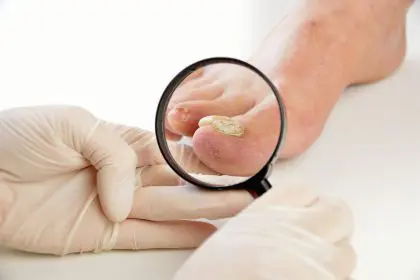Daily stress operates like a silent thief, stealing your health one moment at a time. While most people accept stress as part of modern life, few realize how constant exposure to even mild pressure creates lasting damage to both mental clarity and physical wellness. Understanding these hidden effects empowers you to break free from stress’s grip before it’s too late.
Daily stress creates invisible damage
Your morning commute, work deadlines and family responsibilities might seem manageable, but your body treats these everyday pressures like serious threats. Each stressful moment triggers your fight-or-flight response, flooding your system with cortisol and adrenaline designed for escaping predators, not handling emails.
When cortisol levels remain elevated day after day, the consequences multiply:
- Blood pressure stays dangerously high
- Digestive processes slow to a crawl
- Immune function drops significantly
- Inflammation spreads throughout the body
This constant state of alert exhausts your system. What starts as normal daily pressure transforms into a health crisis that builds gradually, often going unnoticed until serious symptoms appear.
Your brain pays the highest price
Chronic stress doesn’t just make you feel bad – it physically changes your brain structure. The hippocampus, responsible for memory and learning, actually shrinks under persistent stress. Meanwhile, the amygdala, your brain’s alarm system, grows larger and more reactive.
These changes manifest in daily life through:
- Persistent brain fog and confusion
- Memory lapses during important moments
- Emotional outbursts over minor issues
- Decision-making paralysis
- Constant feelings of overwhelm
Depression and anxiety rarely appear suddenly. They develop as your brain remains trapped in hypervigilance, constantly scanning for threats that may not exist. For children and teenagers, these effects prove especially devastating, potentially altering brain development and emotional regulation for life.
Physical symptoms reveal internal chaos
Stress announces itself through your body in ways you might dismiss as normal aging or bad luck. That recurring headache, persistent back pain or frequent cold isn’t coincidence – it’s your system crying out for relief.
Cardiovascular damage occurs as elevated heart rate and constricted blood vessels create perfect conditions for hypertension, stroke and heart attack. Your heart works overtime even during rest.
Digestive disruption leads to bloating, cramps and nutrient malabsorption. Stress diverts energy from digestion, leaving food to ferment and cause discomfort.
Immune suppression makes you vulnerable to every passing virus. White blood cell activity drops, leaving defenses weakened when you need them most.
Hormonal havoc affects everything from sleep cycles to reproductive health. Both men and women experience reduced libido and fertility challenges under chronic stress.
Even your appearance suffers. Acne breakouts, eczema flares and sudden hair loss often trace back to internal pressure manifesting externally.
Hidden triggers compound the problem
Modern life bombards you with micro-stressors that seem insignificant individually but create cumulative damage. The constant ping of notifications, endless news cycles, poor sleep habits and skipped meals all activate stress responses without your conscious awareness.
Common overlooked triggers include:
- Scrolling through negative social media content
- Overcommitting to social obligations
- Perfectionism in daily tasks
- Lack of boundaries with work
- Information overload from multiple sources
These small pressures add up like compound interest, creating a debt your body eventually must pay. Recognizing these hidden stressors allows you to eliminate or minimize their impact.
Your body’s desperate need for recovery
Physical symptoms represent your body’s plea for change. Chronic fatigue, weakened immunity and persistent pain aren’t character flaws – they’re biological warning signals demanding attention.
Simple recovery practices can reverse damage:
Breathwork activates your parasympathetic nervous system, countering stress hormones naturally. Five minutes of deep breathing creates measurable changes.
Movement releases tension while lowering cortisol. Even gentle walking provides relief without adding exercise stress.
Sleep hygiene allows cellular repair and mental processing. Consistent bedtimes and wake times regulate hormones naturally.
Digital boundaries give your nervous system essential breaks. Regular screen-free time prevents constant stimulation.
These aren’t luxury activities – they’re survival tools in our high-pressure world.
Recognizing when you need support
Self-care has limits. When stress symptoms persist despite lifestyle changes, professional help becomes necessary. Warning signs that indicate it’s time to seek support include feeling paralyzed by anxiety, experiencing physical symptoms without medical cause or noticing relationships suffering due to stress reactions.
Mental health support isn’t weakness – it’s wisdom. Therapists provide tools and perspectives impossible to achieve alone. Medical providers can assess whether stress has created conditions requiring treatment. Early intervention often reverses damage before it becomes permanent.
Taking back control of your life
Stress doesn’t have to dictate your future. Small, consistent actions create powerful change over time. Start by setting one boundary, taking one daily break or practicing one stress-reduction technique. Build from there as your capacity grows.
In a culture that glorifies constant hustle, choosing rest becomes revolutionary. Protecting your mental and physical health isn’t selfish – it’s essential for showing up fully in all areas of life.
Listen to your body’s signals. Honor its need for rest. Give yourself the same compassion you’d offer a struggling friend. Your health depends on breaking free from stress’s grip, and every small step counts toward that freedom.
The damage from everyday stress is real, but so is your power to heal. Start today with one small change. Your future self will thank you for the investment in peace, health and genuine wellbeing.
















